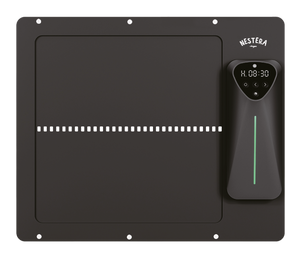Good news, egg lovers! New research shows eggs are even better for heart health than previously thought. As fellow chicken keepers, we expect you already knew that eggs were the ideal breakfast – but now science has confirmed it!
Recent studies found that those who ate one egg a day were at lower risk of heart disease than those who ate eggs less frequently. After studying the diets and blood samples of 4,778 people – some of whom had existing cardiovascular disease – researchers at Peking University found that moderate egg consumption increases the number of heart-healthy metabolites. Their tests concluded that those who ate one egg a day were at much lower risk of heart disease than those who consumed eggs less frequently.
Until the early 2000s, most health agencies advised egg consumption was limited to just three a week, because of initial concerns that egg yolks were harmful to the heart due to their rich source of cholesterol - a single egg yolk contains up to 186mg of dietary cholesterol, more than most other commonly consumed foods. If too much cholesterol accumulates on artery walls, the risk of heart attacks and strokes is increased, so eating too many eggs was considered a risk.
Rhiannon Lambert, registered nutritionist and author of The Science of Nutrition, explains that the myth around eating eggs regularly can lead to heart disease has been categorically disproved by scientists.
“The amount of saturated fats we consume from foods such as red meat and full-fat dairy products has a much more damaging effect on our blood cholesterol levels than cholesterol-containing foods,” Rhiannon says. “These saturated fats change the way receptors in the liver handle cholesterol so that it builds up in the blood, whereas eating cholesterol-containing foods, such as eggs, is not harmful in the same way.”
She continues, “Healthy adults should consume less than 300mg per day of dietary cholesterol, which is the equivalent amount in about three to four eggs, so eating eggs every day is perfectly safe.”
Not only are eggs good for heart health, but they also provide us with a huge variety of nutrients including vitamin D and B vitamins, iron, magnesium, selenium, choline – a compound needed for making cell membranes, and phosphorus – for healthy bones and teeth.
A medium egg contains around 6.4g of protein, mostly from the white, which provides around 13% of an adult’s daily protein requirement, which is essential for muscle growth and maintenance, as well as general health.
Eggs are low in carbs and fat, and with a large egg containing around just 75 calories, they’re also great for your waistline! In 2020, a study by the University of South Australia found that people who ate eggs for breakfast consumed fewer calories at an all-you-can-eat lunch buffet than those who ate cereals and fruit juice for breakfast.
Of course, you and I already knew that eggs are the perfect breakfast! How do you have yours?
Our three ranges of recycled plastic chicken coops aren’t just good for the planet, but provide ideal habitats for happy, healthy hens that can supply you and your family with fresh daily eggs packed with protein, vitamins and minerals.
Depending on the size of your flock, each of our three coops is available in Small, Medium and Large. The Ground Coop is perfect for broody hens, with the Lodge and Raised Coops ideal for hens who want a covered area under their coop to eat, drink, play and take shelter from the weather if needed – not to mention easy access for egg collection!
All Nestera recycled plastic chicken coops are quick and easy to clean, maintenance-free, and most importantly, red mite-resistant! Check out our range of recycled plastic chicken coops here so your hens can stay as happy as healthy as those of us who have fresh eggs for breakfast!


























